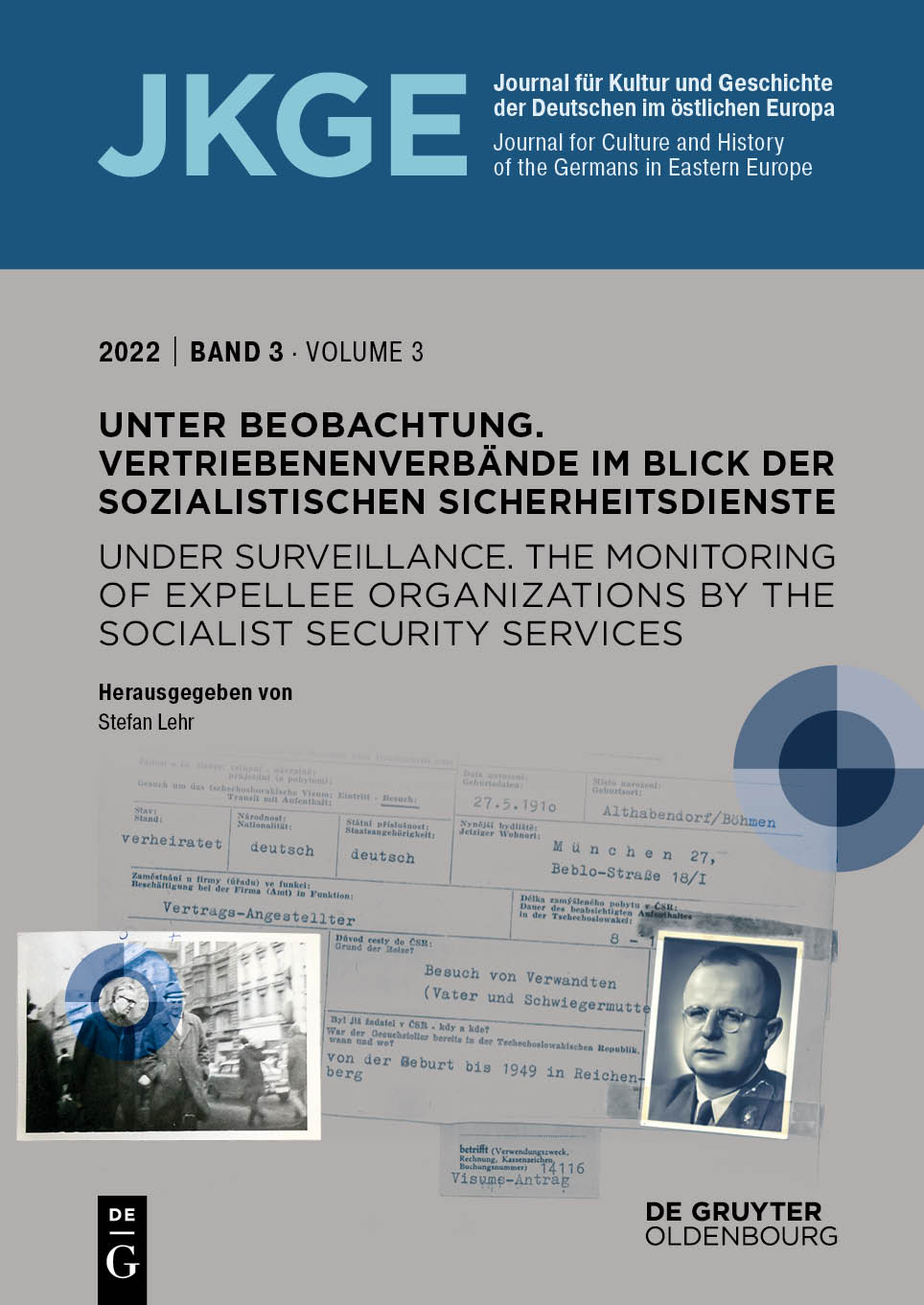Instrumentalizing the Nazi Past. The Securitate’s Infiltration of the Landsmannschaft of the Transylvanian Saxons in the Federal Republic of Germany
Instrumentalizing the Nazi Past. The Securitate’s Infiltration of the Landsmannschaft of the Transylvanian Saxons in the Federal Republic of Germany
Author(s): Corneliu Pintilescu, Ottmar TraşcăSubject(s): Political history, Security and defense, Post-War period (1950 - 1989), History of Communism, Cold-War History
Published by: De Gruyter Oldenbourg
Keywords: Securitate; Securitate files; Romanian Germans; Landsmannschaft of the Transylvanian Saxons; Nazi past;
Summary/Abstract: When the Securitate was created in 1948, the institution inherited large archival fonds created by its predecessor institution (Siguranţa). These fonds were the result of an intense surveillance of the leadership of the German minority, something that increased especially after 1933. This allowed the Nazi past of several leaders and cultural personalities to be traced in detail. When the Communist regime seized power, these files became a tool in the hand of the Securitate in its endeavours to infiltrate and gather information about the German minority in the country. During the 1960s – when the emigration of Romanian Germans to the West became a mass phenomenon – new opportunities emerged. One of the most important areas of activity of the Securitate operations and infiltration was the Landsmannschaften of the Romanian Germans who emigrated to the Federal Republic of Germany (FRG). This paper will focus on two case studies reflecting the instrumentalization by the Securitate of the individual’s Nazi past in order to develop the organization’s surveillance activity on the main institutions of the German minority in Romania, as well as infiltrating the associations of Romanian Germans emigrated in the FRG.
Journal: Journal für Kultur und Geschichte der Deutschen im östlichen Europa
- Issue Year: 3/2022
- Issue No: 1
- Page Range: 197-210
- Page Count: 14
- Language: English

